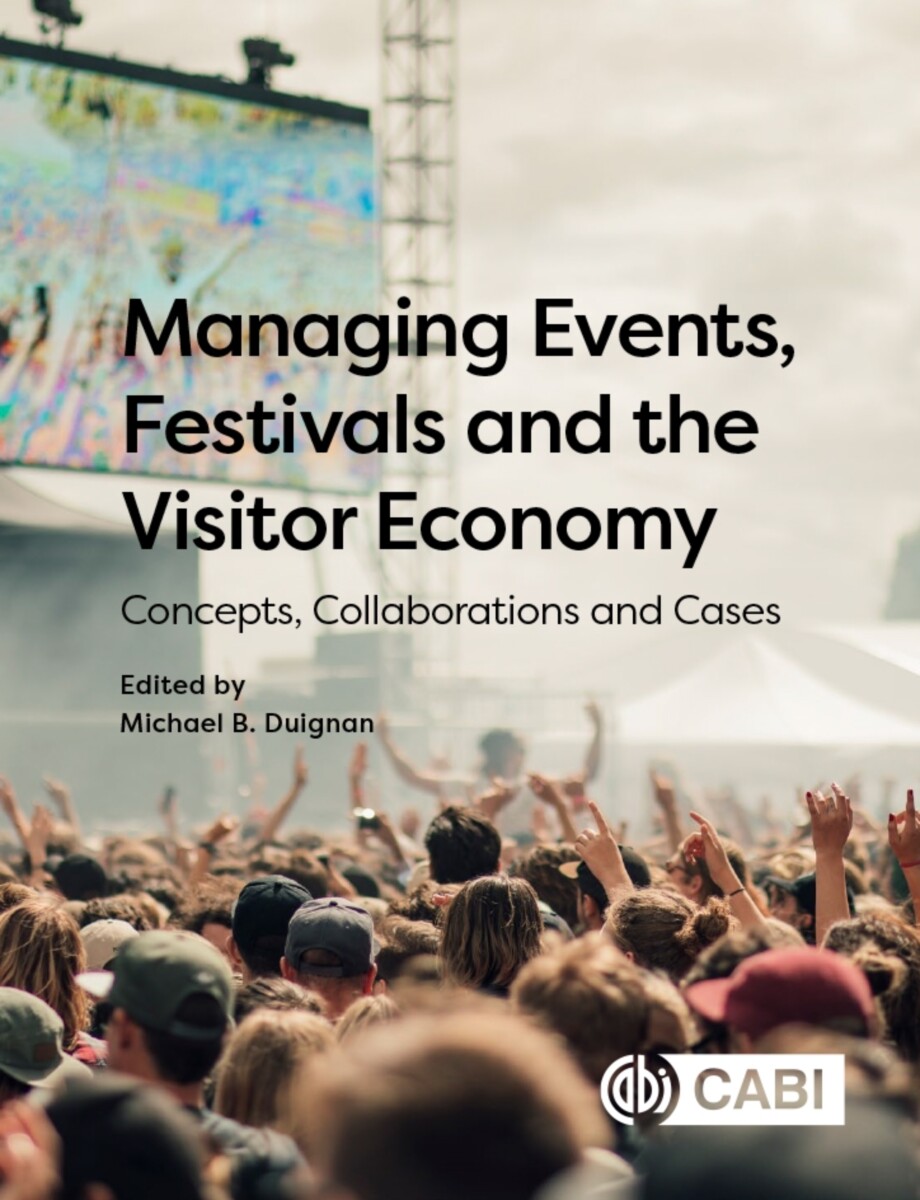Managing Events, Festivals and the Visitor Economy
Concepts, Collaborations and Cases
- Publisher
CABI - Published
20th January 2022 - ISBN 9781789242850
- Language English
- Pages 192 pp.
- Size 7" x 9"
- Request Exam Copy
- Publisher
CABI - Published
20th January 2022 - ISBN 9781789242843
- Language English
- Pages 192 pp.
- Size 7" x 9"
- Request Exam Copy
This edited text, intended to support a research-informed approach to learning and teaching, presents an array of concepts, collaborations and in-depth cases related to managing events, festivals and the visitor economy. Authors offer an array of philosophical, political, cultural, and ethical perspectives on how to achieve this across a range of contexts, from Cambodia, China, Egypt to the British cathedral city of Lincoln. Though recognizing individual difference, each chapter unites in their common pursuit of supporting the United Nations Sustainable Development Goals (UNSDGs). This is significant as utilizing the UNSDGs as a normative organizing framework for how we all think about, plan, and manage a "good" visitor economy is increasingly ubiquitous. It is with this in mind that each chapter provides explicit links to the UNSDGs and policy and/or practical implications, along with a series of critical self-assessment questions to reflect on the chapter's key arguments.
1: Managing the visitor economy: Concepts, collaborations and cases. Michael B. Duignan
2: Studying the complexities of events and festivals and relationships to the visitor economy. Judith Mair, Martin Robertson, Leonie Lockstone-Binney, Michael B. Duignan
3: Creating dementia-friendly destinations in Scotland. Marcus Hansen, Alan Fyall, Anna Leask, and Kenneth Wardrop
4: (Re)visiting spaces of home: Examining German ‘Heimat’ tourists ‘returning’ from Romania and implications for the visitor economy. Andrea Bieber, Werner Gilde and Desmond Wee
5: Re-inventing ‘Ice of Whyte’: How a mature winter festival sought renewal in the visitor economy. Elizabeth Halpenny, Nanxi-Yan, and Kim MacMillian
6: Flagship attraction development and destination competitiveness: The Grand Egyptian Museum, Egypt. Mostafa Selima, Alan Fyall, and Tadayuki Hara
7: Understanding generational differences in multiple place identities and the visitor economy: The case of migrants’ descendants in China. Ning (Chris) Chen, Yong Rao, and Anle Li
8: Managing overtourism at UNESCO sites: The case of Angkor Wat, Cambodia. Claudia Green
9: Managing the visitor economy in a global overtourism context: Locals’ satisfactions and dissatisfactions with tourism and events in Winchester, UK. Hugues Seraphin and Maximiliano Korstanje
10: Assessing Malta’s overtourism. Lino Briguglio and Marie Avellino
11: The impact of the Rio 2016 Olympic and Paralympic Games on the visitor economy: A human rights perspective. Gabriel Marin Vandenbroucke, Simon Gérard, and Anthony May
12: Collaborating with students to provide consultancy to Lincoln City FC football club and the visitor economy. Abigail Hunt and Nick Taylor
13: Using a Student as Producers approach to study visitor experiences in relation to the Magna Carta Exhibition in Lincoln, UK. Barry Ardley, Nick Taylor, Richard Voase, and Miles Hedison
Michael B. Duignan
Michael B. Duignan is a Reader in Events at the School of Hospitality and Tourism Management, University of Surrey, UK. Previously, he was a Senior Lecturer in Management and formerly Program Director of the MSc International Events Management and MSc Sport Management at Coventry Business School, Coventry University, UK. He has held visiting positions at Pace University (New York), Berlin School of Economics and Law (Berlin, Germany), and Waseda University (Tokyo, Japan). His work spans across management, organizational, and development studies, specifically examining the relationship between events, local communities, urban development, and the visitor economy. Most of his work focuses on large scale events like the Olympics and the cities and urban neighbourhoods that play host. He frequently works with global organizations like the International Olympic Committee and regional events organizations to evaluate the impact and legacy of sports and cultural events. To date, his case study work spans across London 2012, Rio 2016 and Tokyo 2020 Olympic Games, Commonwealth Games (e.g. Gold Coast 2018), and regional events.


